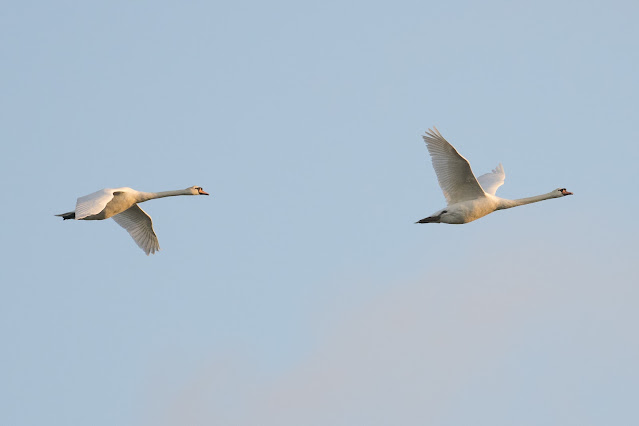Although hugely numerous further up the Fleet Mute Swans are always infrequent visitors to our recording area © Pete Saunders:
With unfinished business there we took advantage of the quiet conditions to have another nip over for the Richard's Pipit at Chickerell at the end of the afternoon in the hope that it'd be calling as well as on our previous visit when we didn't have any recording gear with us. Although more or less ever-present in its seemingly now favourite field it was always at 'scope views' distance but did make one nice fly-round when it called quite a few times and later called sporadically when settled on a hedge; the initial calls on this recording are of it flying and the last three are of it settled - to our ear the settled calls are perhaps a teeny bit higher-pitched and so maybe a little bit more House Sparrow-like.
We can't remember anything much about the vaguely Richard's Pipit-like calls that the Portland Blyth's Pipits in 1998 gave (most of the time they gave the much more distinctive chip or chup calls which, incidentally, the fabled 'Portland Pipit' in 1989 also did all the time!) but Stanislas Wroza's handy comparative sonogram with the captions Google Translated - Richard's on the left and the two Blyth's calls on the right - in Identifier les Oiseaux Migrateurs par le Son shows they're reasonably different to the typical Richard's call:



